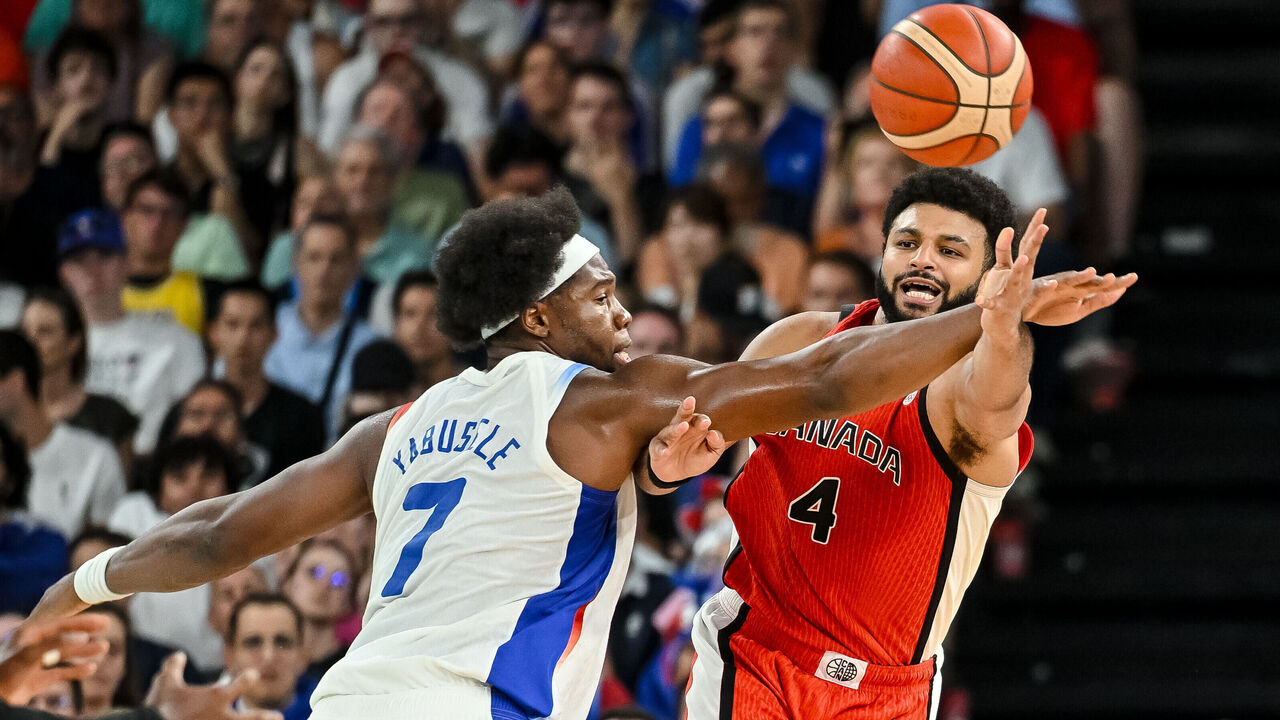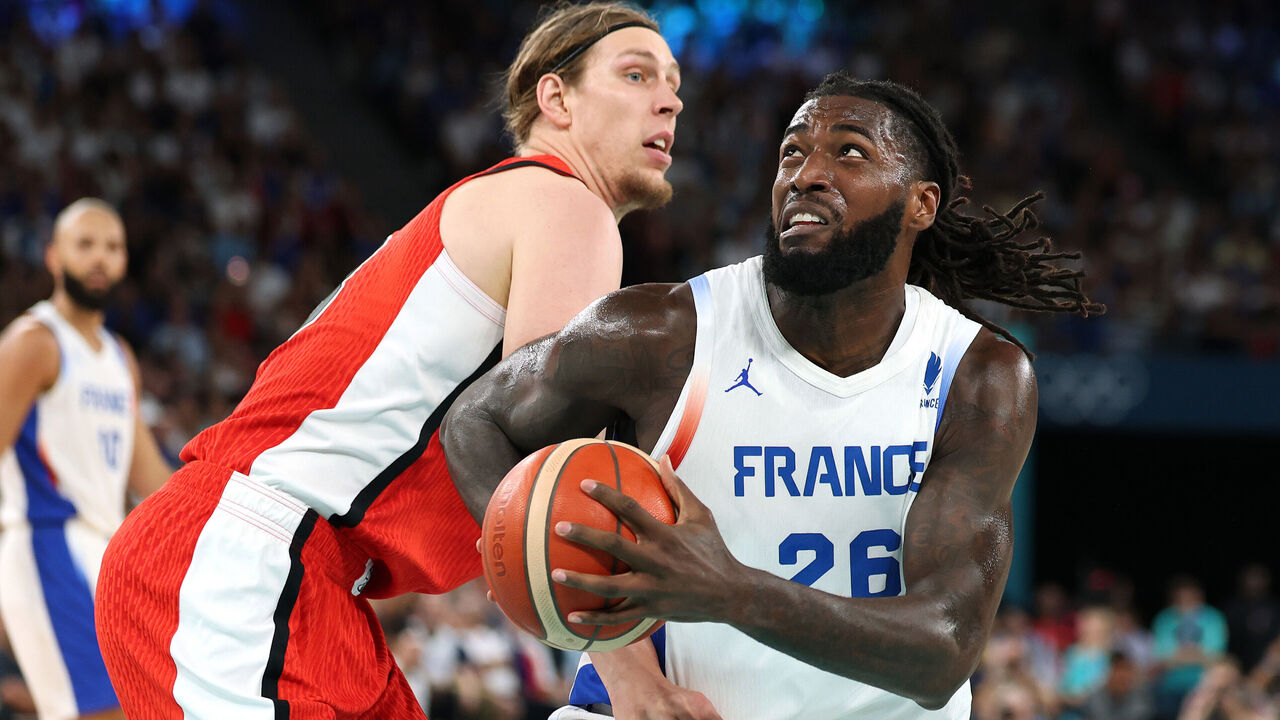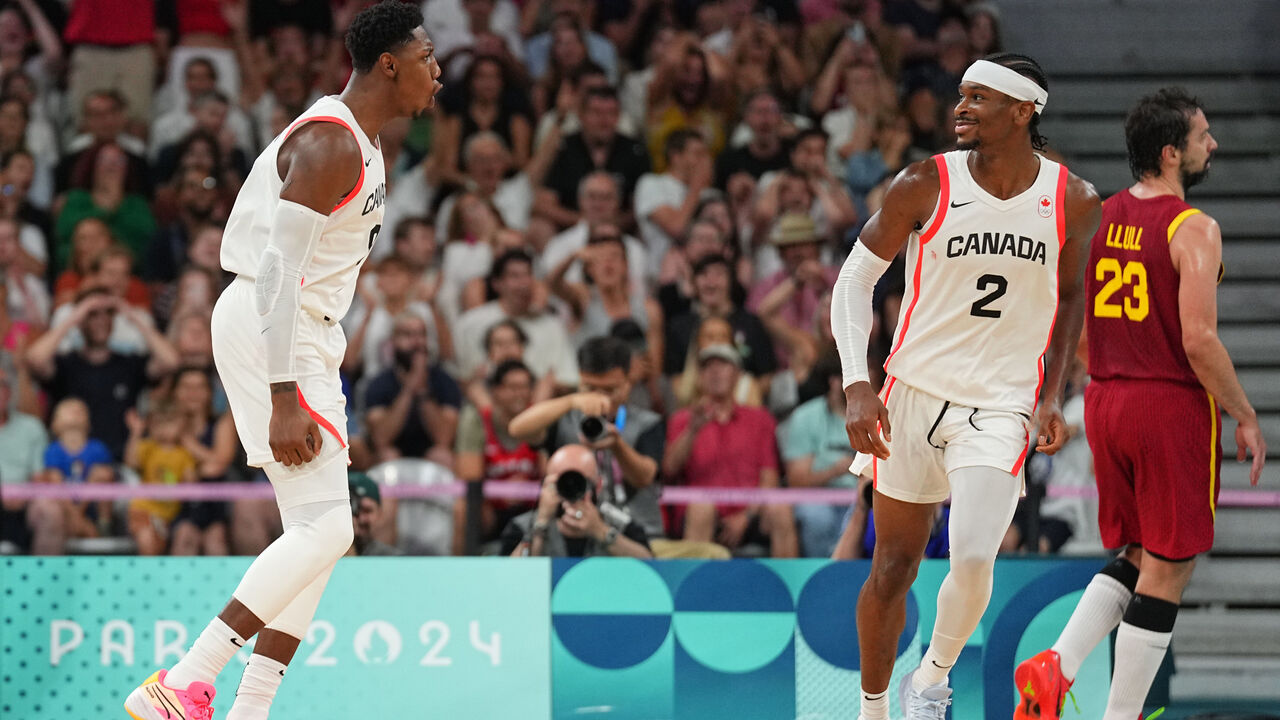One and done: What went wrong for Team Canada in France?
An Olympic tournament that began with so much promise for Canada - and one Canadian basketball fans waited 24 years for - came to a frustrating end with an 82-73 quarterfinal loss to France. A team that arrived in France with genuine gold-medal hopes and entered the knockout rounds with a perfect record is suddenly going home without anything to show for it.
Losing a 40-minute, single-elimination game to this French squad (on its home court, no less) isn't exactly an inconceivable result. In what was billed as the deepest and most balanced international basketball tournament ever staged, the margin for error was slim. Even the mighty Americans are capable of losing on any given day. But Canada was coming off a bronze medal at last year's FIBA World Cup, brought an even stronger squad to Paris than it did to Asia last summer, and fully embraced the pressure and expectations that came with its collective talent.
From that vantage point, falling short of the medal rounds has to be seen as an abject failure. Here's how it all went wrong:
The biggest disappointment

Jamal Murray couldn't have envisioned a worse Olympic performance in his nightmares. It was wretched from start to finish.
Whether it was the lingering calf issue that's hampered him since the spring, the absence of an all-world pivot like Nikola Jokic to orbit around, or his unfamiliar role as a sixth man, Murray just never looked comfortable or found his rhythm on this Canadian squad.
He forced jumpers that should've never been hoisted and balked at open looks that were seemingly the right shots to take. He was sloppy and indecisive as a playmaker, especially in Tuesday's loss to France. He mixed in a few inspiring defensive plays over the last week, but overall, it was a tournament to forget.
There was hope that Murray, one of the NBA's ultimate big-game performers, would awaken just in time for the knockout rounds. With the team sputtering out of the gates on Tuesday, Canada desperately needed him to. Instead, Murray's first contribution off the bench was a ghastly turnover, followed by an unsportsmanlike foul in an attempt to prevent a fast break the other way. It was a sign of things to come, as the Nuggets guard scored seven points on 3-of-13 shooting while committing three turnovers and recording just one assist.
Over Canada's four games, only fellow reserve guard Andrew Nembhard posted a worse plus-minus. But at least Nembhard shot the ball well. Bringing Murray off the bench should've allowed him to overmatch inferior competition while Shai Gilgeous-Alexander dominated the ball with the starters. Instead, Murray was arguably Canada's weakest link - a shocking turn of events.
Between Murray and Gilgeous-Alexander, Canada was supposed to have the best backcourt in the tournament. Instead, little-known French guard Isaia Cordinier (20 points) nearly matched Murray's entire tournament output (24 points) in the quarterfinal alone.
The rest of Canada's bench wasn't much better, and the team's dearth of quality bigs undoubtedly held them back, but that wasn't surprising. Murray being such a negative was the unexpected disappointment, and it made Canada's expected flaws too much to overcome.
No bigs, no medal

We talked about it at every stop along the way - Canada's lack of size and quality bigs was always going to be the team's undoing. In a tournament where the U.S. boasts three All-Star centers, Serbia boasts the three-time reigning MVP, and France has the freakish Victor Wembanyama, a Canadian rotation of Dwight Powell, Kelly Olynyk, Trey Lyles, and Khem Birch was never going to cut it. Tuesday's loss to France laid it bare for all to see.
With the undersized Dillon Brooks taking on the inspiring role of Wemby-stopper to start the quarterfinal matchup, starting center Powell was rendered useless. The Mavericks big man wasn't quick enough to guard France's forwards and isn't talented enough offensively to use his size on the other end, though he did pull down a game-high four offensive rebounds and team-high nine total boards.
After Powell came Olynyk, whose first taste of quarterfinal action saw him unable to score on French guard Evan Fournier. The possession ended in such ugly fashion that it was hard to tell if Olynyk had recorded a field-goal attempt or turnover while trying to post-up his much smaller opponent. Lyles didn't fare much better, either, as he and the rest of Canada's bigs were bullied by French forwards Guerschon Yabusele and Mathias Lessort.
Unable to contend with the French frontcourt's physicality, Canada sent France to the free-throw line 42 times, with Lessort and Yabusele combining for nearly as many free-throw attempts (23) as the entire Canadian team (25). You could argue the officials were swayed by a raucous French crowd, and there were certainly a few questionable whistles, but the disparity had more to do with the matchup than anything else. Canada was ill-equipped to handle the French frontcourt as a whole and lost a game in which Wembanyama scored seven points on 2-of-10 shooting (and reigning NBA Defensive Player of the Year Rudy Gobert barely played).
Of course, the French phenom's impact can't simply be measured by his offensive contributions. Wembanyama's work on the glass, his ability to steal back possessions with his otherworldly length, and his mere presence in the paint mucked up Canada's offense.
If Canada's golden generation is going to deliver something grander than a World Cup bronze at some point, the country's going to have to find at least one quality big man who fits this core's timeline. Perhaps the answer is already waiting in the wings in Zach Edey, the two-time NCAA Player of the Year who withdrew from Olympic consideration shortly after being drafted by Memphis.
Taking stock

In the end, the second-most talented team in this tournament leaves France knowing only a few players lived up to expectations. Gilgeous-Alexander was predictably brilliant and nearly dragged Canada back from the brink against France. Lu Dort put forth a herculean effort. RJ Barrett proved a terrific and efficient secondary scorer. Brooks had a disastrous shooting performance (1-of-9) against France, but the polarizing Canadian took on outsized defensive challenges and was an overall positive for the tournament despite his two-point woes and decision-making inside the arc.
Nembhard was a mixed bag, Nickeil Alexander-Walker missed every shot he took and slowly fell out of the rotation, Murray was the most disappointing player in the tournament, and the bigs weren't up to the task. Birch was solid, but the fact he emerged as one of Canada's best two big men is a scathing indictment.
Canada's best players are either in or just entering their primes, and there's more talent coming, whether it be Edey, Bennedict Mathurin, Shaedon Sharpe, or others. There will be more opportunities for hardware in the future, and Canada should become an Olympic mainstay. But the country's depth of top-tier talent didn't prove to be the strength it should've been in France, and that's what makes this feel like such a bitter disappointment.
This team didn't bow out playing its best against superior or even equal competition. It dropped the ball while the majority of its players underperformed.
Joseph Casciaro is theScore's lead Raptors and NBA reporter.
HEADLINES
- Murray drops season-best 45 vs. Mavs as Nuggets win in blowout
- NBA-leading Cavs snap Pacers' 6-game winning streak
- Report: Butler reiterates trade request in meeting with Riley
- Roundball Roundtable: Clippers, Pacers poised for big 2nd half
- Giannis' 50th career triple-double helps Bucks end Kings' 7-game win streak